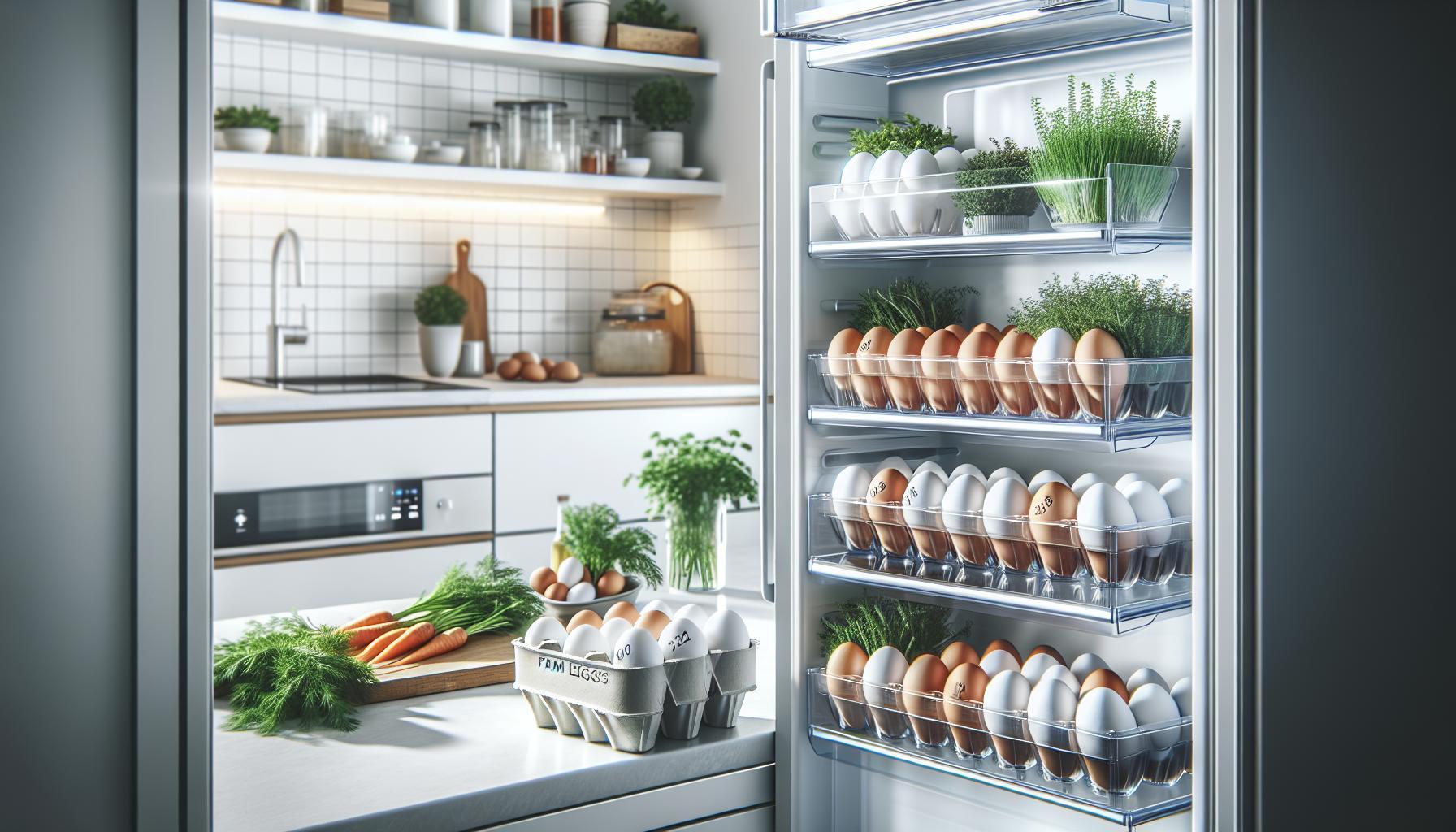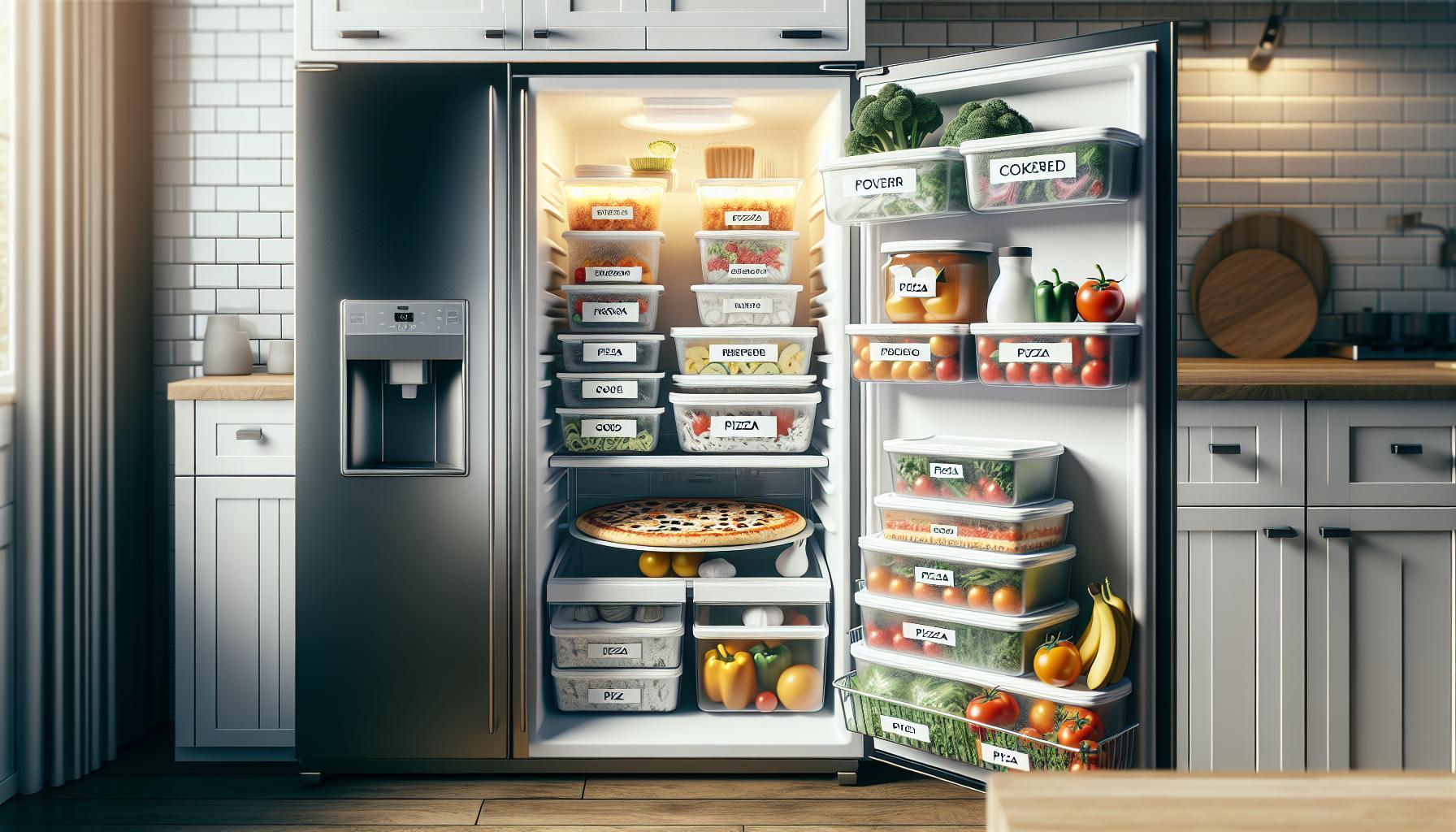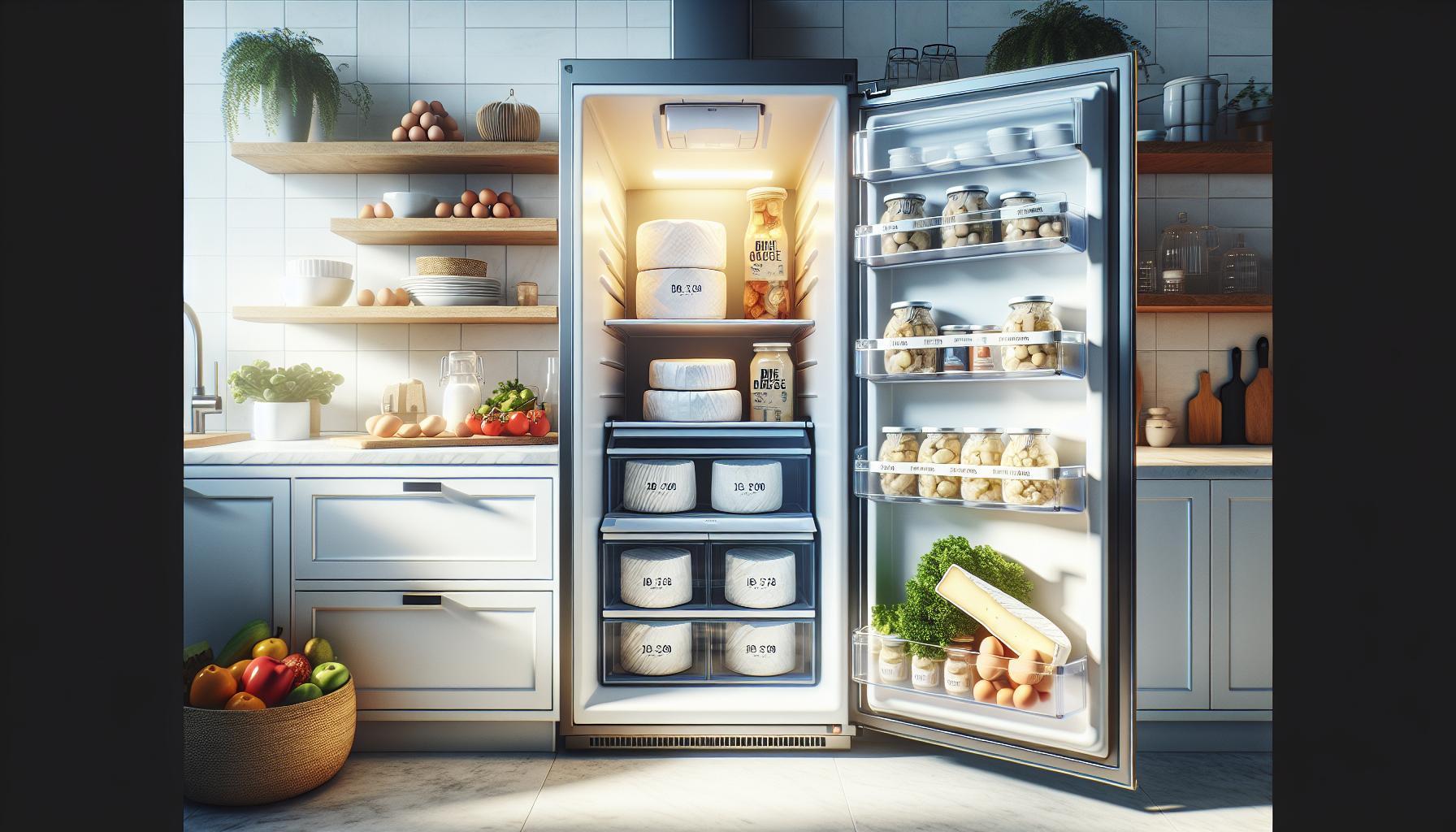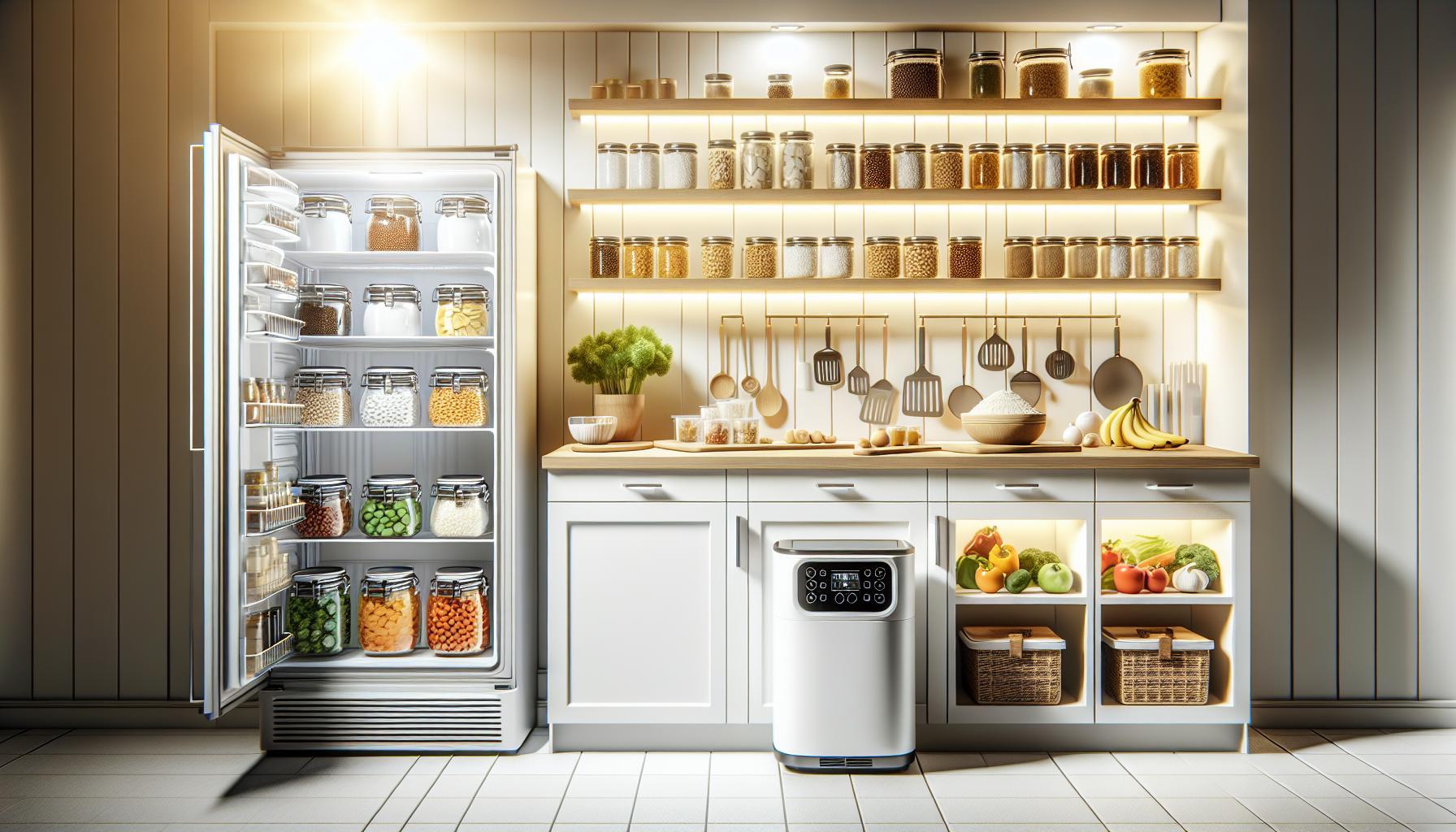Eggs are a staple in many kitchens, prized for their versatility and nutritional value. Yet, many home cooks often wonder: how long do farm-fresh eggs last in the fridge? Understanding the shelf life and freshness of your eggs not only ensures safety but also helps you make the most of this culinary essential.
Farm eggs can last several weeks if stored properly, but freshness dramatically impacts taste and texture, especially in favorite dishes such as omelets and baked goods. By learning effective storage methods and recognizing signs of spoilage, you can minimize waste and elevate your cooking. Continue reading to discover essential tips on maximizing egg freshness and ensuring your meals are both delicious and safe.
How Long Do Farm Eggs Last in the Fridge?

Fresh farm eggs are a delight for any home cook, but knowing how long they last in the fridge is crucial for food safety and quality. When stored properly, farm eggs can typically last about 3 to 5 weeks in the refrigerator from the time you bring them home. One of the best features of farm-fresh eggs is their longevity-due to their natural protective coating, also known as the bloom, these eggs can maintain their quality longer than you might think.
To ensure you maximize the shelf life of your eggs, always store them in their original carton rather than transferring them to a different container. The carton protects the eggs from absorbing odors from other foods in the fridge and helps prevent moisture loss. Always keep your fridge at or below 40°F (4°C) to maintain the quality and safety of the eggs. It’s also advisable to place them on a middle shelf rather than on the fridge door, where temperatures tend to fluctuates more.
It’s essential to regularly check your eggs for freshness and spoilage signs, especially if they have been stored for several weeks. If you’re unsure about an egg’s freshness, a simple water test can be performed: fill a bowl with water and gently place the eggs in it. Fresh eggs will sink and lie flat on the bottom, while older eggs will start to stand upright or float, indicating that it’s time to toss them out.
Remember, using farm-fresh eggs not only enhances your recipes-from breakfast dishes to baked goods-but being aware of their storage life ensures that every dish you make is safe and delicious.
Signs of Freshness: How to Check Your Eggs

Fresh eggs are a staple in many kitchens, but knowing how to determine their freshness is crucial for both food safety and culinary success. One of the simplest methods to check the freshness of your eggs is the water test. By filling a bowl with water and gently placing the eggs inside, you can observe their behavior. Fresh eggs will sink and lie flat on the bottom, indicating they are still good to use. As eggs age, they begin to lose moisture and air content, causing them to float or stand upright in the water, which suggests it’s time to discard them.
Another key indicator of an egg’s freshness is its appearance once cracked open. Fresh eggs should have a clean, bright yolk that stands tall and a bit of thick, gel-like egg white that holds its shape. As eggs age, the yolk becomes flatter, and the whites become thinner and more spread out. If there’s any discoloration or an off-putting odor, these are signs that the egg is bad and should not be consumed.
Additionally, checking the egg’s shell can provide insights into its freshness. A fresh egg typically has a clean, uncracked shell with a natural coating that protects it. If you see any cracks or powdery residue, it could indicate contamination from bacteria. Remember, even if an egg appears normal on the outside, it’s essential to crack it open and check for any unpleasant smells or off colors.
By combining these simple testing techniques, you can ensure that your eggs are fresh, enhancing both the quality and safety of your culinary creations. Always trust your instincts; when in doubt, it’s better to err on the side of caution and dispose of any eggs you’re uncertain about.
Best Practices for Storing Farm Fresh Eggs
To maximize the longevity and quality of your farm-fresh eggs, understanding the best methods for storage is crucial. A common misconception is that eggs should be washed before storing, but this can actually remove the protective coating on the shell, allowing bacteria to penetrate. Instead, it’s best to leave the eggs unwashed until you’re ready to use them. This natural coating helps keep eggs fresher for longer.
When it comes to storage, placing your eggs in the refrigerator is essential. Always keep them in their original carton, as this protects them from absorbing odors and flavors from other foods while also preventing moisture loss. Store the carton on a middle shelf, rather than in the door, where temperatures fluctuate more due to frequent openings. The ideal temperature for storing eggs is around 33-40°F (0-4°C). Consistently keeping eggs at this temperature can extend their freshness significantly, often up to 3-5 weeks beyond the date printed on the carton.
Another effective practice is to position the eggs with the pointed end down in the carton. This orientation helps keep the yolk centered and reduces the likelihood of air entering the egg, which can lead to spoilage. If you’ve purchased or harvested eggs that are not yet chilled, it’s important to cool them to the appropriate temperature gradually to prevent cracking.
In addition to proper refrigeration, consider labeling or numbering your egg carton with the purchase or packaging date. This can serve as a quick reference to monitor their freshness and ensure you use the oldest eggs first. If you notice any cracks or irregularities in your eggs, be sure to analyze them carefully, as these can be signs that they are no longer safe for consumption. Following these strategies will help ensure that your farm-fresh eggs remain delicious and safe for your culinary needs.
The Science of Egg Freshness: What You Need to Know

Egg freshness is not just a matter of how long they have been stored; it’s also about understanding the science behind what keeps them good to eat. Fresh eggs from farm sources can last up to 3-5 weeks in the refrigerator if stored properly, but their quality debases over time. The freshness of an egg can be attributed to its internal and external characteristics, many of which can be preserved with proper handling and storage techniques.
One of the primary factors impacting egg freshness is the protective cuticle that naturally coats the shell. This layer acts as a barrier to bacteria and helps prevent moisture loss. When eggs are washed, this protective coating is removed, compromising their ability to stay fresh. Therefore, it is best to leave eggs unwashed until you’re ready to use them. Furthermore, refrigeration plays a critical role in slowing down the aging process. An ideal storage temperature of 33-40°F (0-4°C) minimizes bacterial growth and maintains quality.
As eggs age, their internal components change; for instance, the egg white becomes thinner and the yolk less firm, gradually leading to a loss of structural integrity. This process can be detected with a simple freshness test-try the float test. Submerge an egg in water; if it sinks, it’s fresh; if it stands upright or floats, it’s time to discard it. Monitoring these changes, along with consistent refrigeration, ensures you can enjoy eggs at their best.
To further extend shelf life, consider placing eggs in their original carton and storing them in the middle of the fridge, where the temperature is most stable. Labeling cartons with the purchase date can also help you keep track of their freshness. Implementing these practices not only preserves the quality of your farm-fresh eggs but also helps you confidently use them in your culinary creations, knowing that they are safe and delicious.
Storage Lifespan: Farm Eggs vs. Store-Bought Eggs
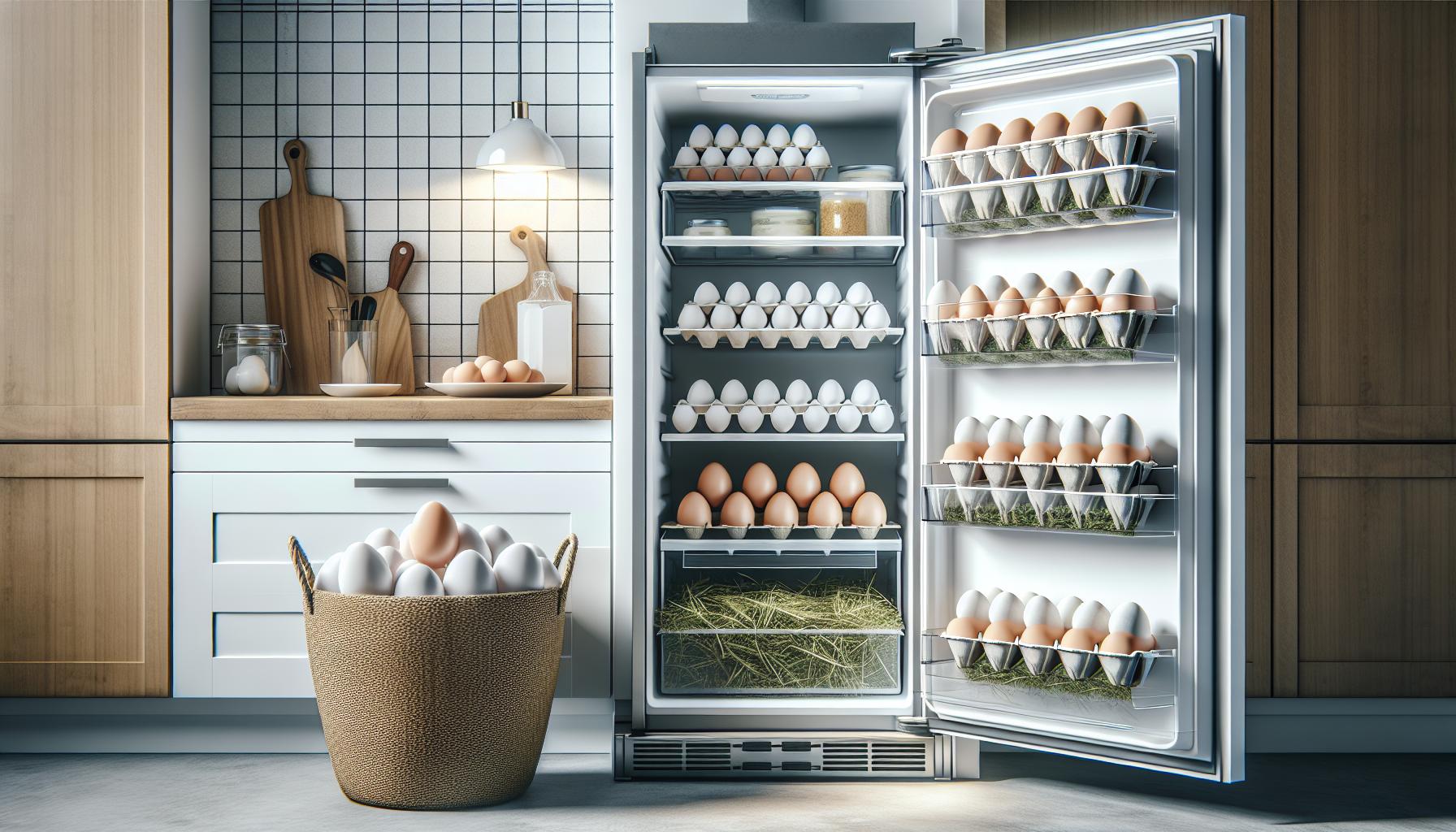
Farm-fresh eggs possess remarkable qualities that can greatly influence their storage lifespan compared to store-bought varieties. Throughout their journey from hen to kitchen, the handling and processing practices ensure that farm eggs maintain superior freshness when compared with their commercially produced counterparts. Generally, when stored properly in the refrigerator, farm eggs can last anywhere from 3 to 5 weeks. In contrast, store-bought eggs, which may have been washed and treated, often have a shelf life that varies from 3 to 6 weeks but usually lean towards the shorter end due to their handling during processing.
Differences in Storage
The primary factors affecting the longevity of both farm and store-bought eggs stem from their initial treatment and packaging. Farm-fresh eggs typically retain their bloom or cuticle-the natural protective coating-when they’re left unwashed, which helps seal in moisture and keeps out bacteria. Conversely, most store-bought eggs lose this protective layer when they undergo industrial washing. This results in a faster deterioration rate, which is why proper storage techniques are crucial.
To maximize the lifespan of farm eggs, it’s essential to keep them in their original carton, ensuring they are located in the coldest part of the fridge, rather than the door, where temperatures fluctuate more frequently. The original carton also protects the eggs from absorbing strong odors present in the fridge and reduces the risk of moisture loss. Store-bought eggs benefit from similar storage practices, yet their longer journey from farm to store means they may have already begun to degrade in quality even before they reach your refrigerator.
Freshness Testing Strategies
One practical way to determine the freshness of your eggs, regardless of their source, is the float test. Fill a bowl with water and gently place the egg in it; if it sinks and lies flat on the bottom, it’s fresh. If it stands upright or floats, it’s best to discard it. Regularly checking your eggs and being mindful of storage conditions can significantly enhance your culinary experience. By maintaining optimal storage practices and understanding the differences between farm-fresh and store-bought eggs, home cooks can confidently create delicious meals while ensuring food safety.
Tips for Extending the Shelf Life of Eggs
To keep your eggs fresh for as long as possible, implementing a few straightforward yet effective strategies can significantly enhance their shelf life. This not only maximizes your investment but also promotes food safety and minimizes waste. A vital step is to store your eggs in their original carton; this helps protect them from strong odors, moisture loss, and from absorbing the flavors of other foods in your refrigerator. Additionally, placing the carton in the coldest part of the fridge-typically near the back-avoids temperature fluctuations that can occur in the door compartment.
Another important practice is to avoid washing eggs before storing them. The natural protective coating, known as the bloom or cuticle, is vital for keeping bacteria out and moisture in. If you do need to clean an egg, do so just before you plan to use it. Moreover, maintaining a consistent refrigerator temperature below 40°F (4°C) is essential; a simple thermometer can help ensure your fridge is adequately cooled.
For extended storage, freezing eggs is an excellent option. Crack them into a bowl, beat until blended, and pour into airtight containers, leaving some headspace for expansion. Frozen eggs can last up to a year, providing a versatile ingredient for baking and cooking later on. Furthermore, labeling containers with the date of freezing can help you keep track of freshness.
Lastly, practicing regular checks on your egg supply can prevent using spoiled eggs. Familiarize yourself with the float test: place an egg in a bowl of water-if it sinks and lies flat, it’s fresh; if it stands upright or floats, it should be discarded. By adopting these tips, you can confidently enjoy your farm-fresh eggs longer and more safely.
Common Myths About Egg Storage Debunked
Many misconceptions surround the storage of eggs, which can lead to unnecessary food waste or safety concerns. One common myth is that eggs must always be refrigerated to remain fresh. In reality, while refrigeration significantly extends the shelf life of eggs, many countries, particularly in Europe, store eggs at room temperature after a thorough cleaning process that preserves their natural protective layers. However, for home cooks in the U.S. where eggs are washed before packaging, it’s best to keep them refrigerated.
Another prevalent belief is that eggs remain fresh as long as they are within the sell-by or expiration date on the carton. While these dates provide a guideline, they are not absolute indicators of freshness. Eggs can often be used safely weeks beyond these dates, provided they are stored correctly. A simple method to test an egg’s freshness is the water float test: place the egg in a bowl of water-if it sinks and lies flat, it’s fresh; if it stands upright or floats, it’s time to toss it.
Some people think that the color of the eggshell indicates quality or freshness. In fact, the color of the shell, whether brown or white, has no impact on taste or nutritional value. It’s simply determined by the breed of the hen.
Finally, you might hear that washing eggs before storing them is essential for cleanliness. However, washing eggs can remove the protective bloom that helps keep bacteria out and moisture in. It’s best to leave them unwashed until just before use, ensuring they stay fresher and safer for consumption. By debunking these myths, you can make more informed choices about how to store and use your eggs, ensuring food safety and waste reduction.
Understanding Egg Expiration Dates: What They Mean
Understanding egg expiration dates can be confusing, yet they play a vital role in ensuring food safety and quality. Many consumers might glance at the sell-by or expiration dates on egg cartons and assume those are definitive indicators of freshness. However, these dates are more of a guideline than a strict rule. In fact, properly stored eggs can be safely consumed for several weeks after their expiration date, depending on various factors such as storage conditions and the initial quality of the eggs.
Egg cartons typically display either a sell-by date or a use-by date. The sell-by date indicates the last date the store should sell the eggs, ensuring that they are still fresh for a reasonable period afterward. A use-by date, on the other hand, is a suggestion from manufacturers regarding when the eggs are at their peak quality. While it is essential to respect these dates, using sensory cues-like smell and appearance-can be equally crucial. If an egg smells bad, appears discolored, or has a cloudy white, it’s best to err on the side of caution and discard it.
To maximize freshness, it’s recommended to keep eggs in their original carton in the coldest part of the refrigerator, not in the door, as that area is subject to temperature fluctuations. On average, farm-fresh eggs can last about 3 to 5 weeks when refrigerated, while store-bought eggs can often remain good for longer due to their processing. Conducting a simple water float test can also help determine an egg’s freshness: if an egg sinks and lies flat at the bottom, it is still fresh; if it stands upright or floats, it’s time to toss it.
By understanding the context behind expiration dates, you can make more informed decisions about your egg consumption. Remember that careful storage and regular freshness checks can help ensure that your eggs stay safe to eat and maintain their best quality for as long as possible.
How to Safely Freeze Eggs for Long-Term Storage
Freezing eggs is an excellent strategy to extend their shelf life while preserving their nutritional value and versatility in various recipes. Many home cooks might be surprised to learn that freshly harvested farm eggs can last in the freezer for up to a year, making this a practical approach for using excess eggs or seasonal surpluses without waste.
To begin the freezing process, first ensure your eggs are fresh and clean. You should never freeze eggs in their shells, as the expansion during freezing can cause them to crack. Instead, break the eggs into a bowl and gently beat them until just combined. This step is essential as it helps to ensure uniform consistency once frozen. You can also separate the yolks and whites if you have specific recipes in mind; however, keep in mind that egg whites freeze better than yolks, which tend to thicken and require mixing with a small amount of salt or sugar before freezing to maintain texture.
Once prepared, pour the egg mixture into ice cube trays or silicone molds, allowing for easy portioning. Alternatively, you can use freezer-safe containers or bags, making sure to leave some space for expansion. Label each container with the date and contents, which will help you keep track of your stash. For optimal quality, aim to use frozen eggs within six months, although they remain safe beyond this time if stored properly.
When it’s time to use your frozen eggs, thaw them slowly in the refrigerator overnight or place them under cold running water. It is essential not to refreeze thawed eggs, so consider portioning them out beforehand for ease of use. Incorporating these frozen eggs into your cooking or baking is simple; treat them like fresh eggs in your favorite recipes, from scrambled eggs to baked goods, ensuring that you have a ready supply even when fresh eggs are scarce. This method not only aids in reducing waste but also maximizes your culinary options throughout the year.
Cooking with Farm Eggs: Recipes and Tips
Cooking with farm-fresh eggs offers not just nutritional benefits but also the opportunity to enjoy vibrant flavors that may be lost in store-bought varieties. These eggs, known for their rich yolks and firm whites, can elevate many dishes, from breakfast staples to gourmet meals. Here are some tips and recipe ideas to help you make the most of those delicious farm eggs sitting in your fridge.
Start by incorporating eggs into classic breakfast options like scrambled eggs or omelets. Use a splash of milk or cream to achieve a creamy texture, and don’t forget to season generously with salt and pepper. For a twist, consider adding fresh herbs, sautéed vegetables, or even crumbled cheese for extra flavor. If you’re feeling adventurous, try a traditional shakshuka-a dish where poached eggs are simmered in a spicy tomato sauce, often accompanied by crusty bread.
Baking with eggs opens another world of possibility. Farm eggs are pivotal in creating light, airy baked goods such as soufflés, meringues, and cakes. A tip for baking: room-temperature eggs whip up better and incorporate more air, giving your cakes a fluffy texture. When making a classic sponge cake, separate the egg whites from the yolks, beating the whites until stiff peaks form-a step that guarantees a rise in your cake.
For those considering meal prep, hard-boiled farm eggs are fantastic for quick snacks or protein additions to salads. To hard-boil eggs perfectly, place your eggs in a single layer in a saucepan, cover with water, and bring to a boil. Once boiling, remove from heat, cover, and let stand for 9-12 minutes depending on the desired doneness. Afterward, transfer them to an ice bath to halt cooking and make peeling easier.
Lastly, when you’re ready to experiment, don’t shy away from using eggs as a binding agent in dishes like frittatas or quiches. These versatile recipes can include whatever leftovers you have on hand-just whisk your eggs, mix in your cooked ingredients, and bake until set. This approach not only minimizes waste but showcases the delightful flavor and freshness farm eggs can bring to any meal. With these tips, you can confidently utilize your farm eggs while ensuring food safety and maximizing their freshness.
When to Toss: Safety Guidelines for Spoiled Eggs
Knowing when to toss your eggs is essential for both safety and quality in your kitchen. Farm eggs can last about three to five weeks in the refrigerator if stored properly, but factors such as time, storage conditions, and even the health of the chickens can affect their freshness. It’s crucial to look for signs that indicate whether your eggs are past their prime, as consuming spoiled eggs can lead to foodborne illnesses.
To determine if your eggs are still good, start with the water float test. Fill a bowl with water and gently place the egg in it. Fresh eggs will sink and lay flat on the bottom. If the egg stands upright on the bottom or floats to the top, it’s best to dispose of it. This method works because as eggs age, air permeates the shell, causing them to become less dense. Additionally, check for any off-smells once you crack the egg open-an unpleasant odor is a sure sign that it has spoiled. The appearance of the egg is also telling; if the yolk is discolored or the egg white is watery rather than firm, it’s time to toss it.
Storage Guidelines
For optimal freshness, store farm eggs in the main body of the refrigerator rather than in the door, where temperature fluctuations are greater. Seal eggs in their original carton to protect them from absorbing strong odors and flavors from other foods. Marking the purchase date on the carton can help you keep track of how long they’ve been stored.
If you’re uncertain whether your eggs are still safe, err on the side of caution. It’s easy to think “better safe than sorry” in the kitchen. Spoiled eggs can cause symptoms such as nausea, vomiting, and diarrhea. To avoid these health risks, always trust your instincts and the signs your eggs give you. Regularly assess your egg stock to minimize waste and keep only the freshest eggs for your culinary needs.
Q&A
Q: How can I tell if my farm eggs are still good?
A: To check if farm eggs are still fresh, perform a simple float test: place the egg in a bowl of water. If it sinks and lies flat, it’s fresh. If it stands upright or floats, it’s time to discard it. Refer to the section on “Signs of Freshness” for more checking methods.
Q: What temperature should farm eggs be stored at in the fridge?
A: Farm eggs should be stored in the refrigerator at a temperature of 40°F (4°C) or lower. This temperature helps maintain their freshness and safety. Place them in the main compartment instead of the door for consistent cooling.
Q: Can I eat farm eggs that have been in the fridge for three weeks?
A: Yes, farm eggs can generally be consumed up to three weeks past the date of purchase if stored correctly in the fridge. However, always check for signs of spoilage before use. Consult the “Storage Lifespan” section for more details.
Q: What is the best way to store farm eggs to maximize their shelf life?
A: The best way to store farm eggs is in their original carton in the refrigerator. This protects them from strong odors and light, helping to maintain their freshness. Refer to the “Best Practices for Storing Farm Fresh Eggs” section for more tips.
Q: How long can farm eggs last after the expiration date?
A: Farm eggs can remain safe to eat for 3 to 5 weeks after their expiration date if stored properly. Always ensure to check for freshness before consumption. For detailed safety guidelines, check the “When to Toss” section of the article.
Q: Are farm eggs healthier than store-bought ones?
A: Farm eggs are often considered healthier than store-bought varieties due to their higher omega-3 content and better overall nutrition, resulting from chickens’ varied diets. Check out the “Farm Eggs vs. Store-Bought Eggs” section for a deeper comparison.
Q: What should I do if I accidentally cracked a farm egg?
A: If you crack a farm egg, store it in an airtight container in the refrigerator and use it within two days for safety. If there’s any sign of spoilage or unusual odor, discard it. More safety information can be found in the “Tips for Extending the Shelf Life of Eggs.”
Q: How can I properly freeze farm eggs for long-term storage?
A: To freeze farm eggs, crack them into a bowl, beat until blended, and pour into a freezer-safe container. They can be stored for up to one year. For detailed freezing instructions, refer to the “How to Safely Freeze Eggs” section of the article.
Future Outlook
Now that you know how to properly store farm eggs and how long they last in the fridge, it’s time to put your knowledge into action! Remember, keeping eggs at their freshest is essential not just for taste but for safety. If you’re eager to dive deeper into kitchen essentials, check out our articles on food storage best practices and how to tell if your eggs are still good to use.
Don’t forget to share your thoughts and experiences in the comments below! Join our newsletter for the latest tips and tricks straight to your inbox, and feel free to explore our product pages for the best food storage solutions. With these resources, you can become a confident home cook, ensuring your meals are both delicious and safe. Keep those eggs fresh, and happy cooking!

